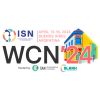Non-pharmaceutical interventions (NPIs) – social distancing, use of face masks, school closures, etc. – help control COVID-19 transmission. NPIs also reduce the spread of other endemic diseases such as influenza and respiratory syncytial virus (RSV), disrupting the "seasonal transmission patterns" of these other respiratory diseases.
You might also like:Alternating Lockdowns and Relaxation for Pandemic Control
Such disruptions may alter the dynamics of endemic infections, according to Princeton University researchers (Baker et al. 2020), who predict large future outbreaks of RSV and influenza may occur following an extended period of NPIs.
During the period NPIs are in place, the researchers explain, the susceptible population for these endemic infections will increase. As a consequence, they say that substantial outbreaks particularly of RSV may occur in future years, noting that peak outbreaks could occur in the winter of 2021-2022.
"Shorter NPIs may occur outside of the peak season of the disease but still lead to elevated future outbreaks," the Princeton team points out. "Longer NPIs may overlap with seasonal peak forcing, resulting in larger future outbreaks on average, but with complex transient effects."
In many parts of the United States, incidence of influenza and RSV usually peaks in the winter months, coinciding with cold, dry climatic conditions. Seasonal flu accounts for significant annual mortality, mainly because the ongoing evolution of the virus’ antigenic sites leads to evasion of the host immune system, the researchers explain.
Currently there is no vaccine for RSV, which causes lower respiratory tract infections in young infants. The disease contributes to about 5% of under-five deaths globally.
This Princeton study aimed to examine the impact of COVID-19-related NPIs on the incidence of these two endemic respiratory infections. As changes to physician visits for both viruses could be driven by behavioural responses to COVID-19-related control measures, the researchers looked at the number of positive tests for both viruses as reported from laboratory surveillance data.
Using surveillance data from 2020, the researchers estimate that RSV transmission fell by at least 20% in the U.S. at the start of the NPI period. Future trajectories of both RSV and influenza were then simulated using an epidemic model, with results indicating peak outbreaks of RSV likely to occur in the winter of 2021-2022. These outbreaks could mean additional burden to healthcare systems, the researchers warn.
"More broadly, our results suggest that healthcare systems may need to prepare for future outbreaks of non-COVID-19 infections, as NPIs are relaxed. These outbreaks may occur several years after initial NPIs were put into place," according to the Princeton team.



























